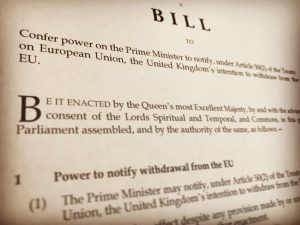By Dr. Jane Rooney, Lecturer in Law (University of Bristol Law School)
NB: Abortion law in Northern Ireland is set to change on 22nd October 2019 if the suspended Northern Irish Assembly continues to not function on or after 21st October. This blog post contextualises and recognises the continued relevance of judicial review proceedings challenging the prohibition on abortion in Northern Ireland in cases of fatal foetal abnormality within a dynamic, multi-layered legal, political and social context.

On 3rd October 2019, the High Court of Justice in Northern Ireland decided that Northern Irish abortion law was incompatible with the Human Rights Act 1998 (HRA) insofar as it prohibited abortion in cases of fatal foetal abnormality (FFA). Justice Keegan decided to refrain from pronouncing on the remedy before hearing further submissions by the parties involved: she delayed the decision over whether to make a declaration of incompatibility (DOI) pending further submissions.[1] This judicial review case follows a momentous year in activism, litigation, and legislative reform on abortion in Northern Ireland. The following provides context to the judgment, and a summary of the key reasoning employed. It then focuses on the DOI point which is yet to be concluded. A DOI should be made for two primary reasons. First, this remedy is warranted in the circumstances of the prohibition on abortion in cases of FFA. It can be distinguished from Nicklinson which introduced the idea that a DOI need not be made despite finding an incompatibility. Second, to proceed with refusing a DOI despite finding an incompatibility, and normalising Nicklinson, would have broader consequences for the human rights protection system in the UK. (more…)


